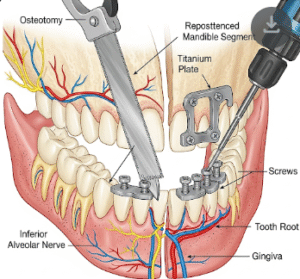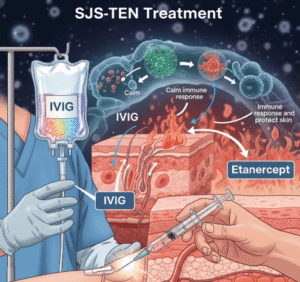What it is
Chemotherapy coordination for gynecologic cancers refers to the systematic planning, delivery, and monitoring of chemotherapy treatment for cancers affecting the female reproductive system. These include ovarian, cervical, endometrial, vulvar, and fallopian tube cancers.
In Korea, chemotherapy coordination is managed through multidisciplinary cancer care teams, ensuring that every patient receives a personalized treatment plan that addresses both medical and supportive care needs. Coordination involves scheduling treatments, managing side effects, providing emotional support, and ensuring smooth communication between specialists.
➡️ Key aspects of chemotherapy coordination:
- Organized scheduling of chemotherapy cycles
- Multidisciplinary approach (oncologists, nurses, pharmacists, nutritionists, counselors)
- Continuous monitoring for effectiveness and side effects
- Integration with surgery, radiation, or targeted therapies
Why it’s done
Chemotherapy plays a critical role in managing gynecologic cancers, either as primary treatment, combined therapy, or for recurrence. Without proper coordination, patients may face unnecessary delays, severe side effects, or fragmented care.
✔️ Medical reasons for chemotherapy coordination include:
- Ovarian cancer: Standard treatment often includes surgery followed by chemotherapy
- Cervical cancer: Combined chemoradiotherapy for locally advanced disease
- Endometrial cancer: Used in advanced, high-risk, or recurrent cases
- Vulvar cancer: Given for advanced or metastatic cases
- Fertility preservation: Coordinated plans to minimize long-term reproductive harm when possible
✔️ Benefits of coordination:
- Timely and safe administration of chemotherapy
- Reduced complications and better management of side effects
- Improved survival outcomes with tailored regimens
- Emotional and psychological support for patients and families
Alternatives
While chemotherapy remains a cornerstone of cancer care, alternatives or complementary strategies may also be considered.
🔹 Surgery alone:
- For early-stage endometrial or cervical cancer, surgery may be curative without chemotherapy
🔹 Radiation therapy:
- May replace or supplement chemotherapy in certain cancers
🔹 Hormone therapy:
- Used in hormone-sensitive endometrial cancers, often when chemotherapy is not ideal
🔹 Targeted therapy and immunotherapy:
- PARP inhibitors, bevacizumab, or immunotherapy drugs increasingly used in advanced ovarian and cervical cancers
- Sometimes used in combination with or instead of chemotherapy
Preparation
Chemotherapy coordination in Korea involves thorough preparation to ensure safe treatment.
➡️ Medical preparation:
- Full diagnostic workup (biopsy, imaging, tumor markers like CA-125)
- Blood tests to evaluate liver, kidney, and bone marrow function
- Genetic and molecular profiling for targeted therapy eligibility
➡️ Personal preparation:
- Arranging transportation and support for treatment days
- Nutrition and hydration planning to tolerate chemotherapy better
- Hair loss management options such as wigs or scalp cooling systems
➡️ Mental preparation:
- Counseling sessions to address anxiety and expectations
- Preparing emotionally for potential side effects and lifestyle changes
- Support groups offered in Korean hospitals for cancer patients
How it’s done
Chemotherapy coordination in Korea is a step-by-step, patient-centered process.
✔️ Step 1 – Personalized treatment planning
- Oncologists determine drug combinations, dosage, and number of cycles
- Common regimens include carboplatin + paclitaxel for ovarian cancer, or cisplatin for cervical cancer
✔️ Step 2 – Scheduling and administration
- Treatments usually given intravenously in hospital infusion centers
- Some oral chemotherapy options may be used depending on cancer type
- Cycles typically every 3–4 weeks
✔️ Step 3 – Supportive care integration
- Anti-nausea medications, hydration therapy, and pain management included
- Nutritional support and physiotherapy available
✔️ Step 4 – Monitoring and adjustments
- Blood counts checked before each cycle
- Imaging and tumor markers monitored to assess response
- Adjustments made if severe side effects occur
✔️ Step 5 – Transition and follow-up
- Post-chemotherapy monitoring for recurrence or remission
- Long-term follow-up with oncologists and rehabilitation teams
✔️ Duration:
- Most chemotherapy regimens last 3–6 months, depending on cancer type and stage
- Long-term follow-up continues for 5+ years
Recovery
Recovery during and after chemotherapy is gradual and requires multidisciplinary support.
➡️ Immediate recovery:
- Fatigue, nausea, vomiting, hair loss, or appetite loss common
- Side effects managed with medications and supportive therapies
➡️ Physical recovery:
- Gradual improvement after cycles end, usually within weeks to months
- Long-term monitoring for nerve damage, heart health, or secondary risks
➡️ Emotional recovery:
- Emotional ups and downs are common due to treatment stress
- Psychological counseling, support groups, and family-centered care provided in Korean hospitals
➡️ Key recommendations:
- Balanced diet rich in protein and vitamins to aid recovery
- Gentle exercise like walking or yoga to reduce fatigue
- Strict infection prevention due to lowered immunity
- Attending all follow-up appointments for monitoring
Treatment option in Korea
Korea is globally recognized for its advanced cancer treatment coordination.
✔️ Hospital facilities:
- National Cancer Centers and leading university hospitals
- Specialized infusion centers with comfortable, private chemotherapy rooms
- Advanced labs for genetic profiling and targeted therapy integration
✔️ Medical expertise:
- Multidisciplinary tumor boards review each case
- Oncologists highly experienced in gynecologic cancers
- Access to international clinical trials and new chemotherapy agents
✔️ Post-treatment care:
- Comprehensive rehabilitation, including pelvic therapy, nutrition, and pain management
- Fertility preservation counseling and options for younger women
- Structured survivorship programs for long-term monitoring
✔️ Cultural aspect:
- Korean healthcare emphasizes family involvement, dignity, and holistic care
- Many patients benefit from Sanhujoriwon-style recovery centers, adapted for cancer recovery with rest, nutrition, and emotional support
➡️ Highlight: Chemotherapy coordination for gynecologic cancers in Korea ensures timely, personalized, and holistic care, combining world-class oncology expertise with advanced supportive programs to maximize survival and quality of life.













